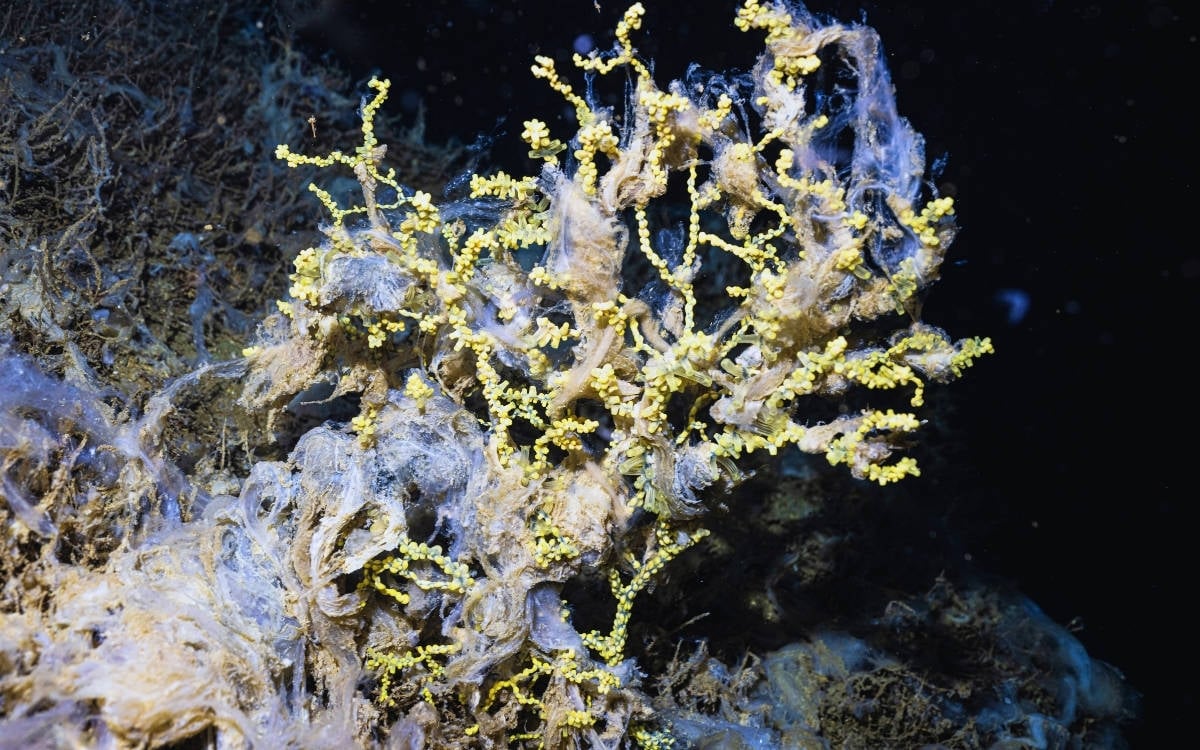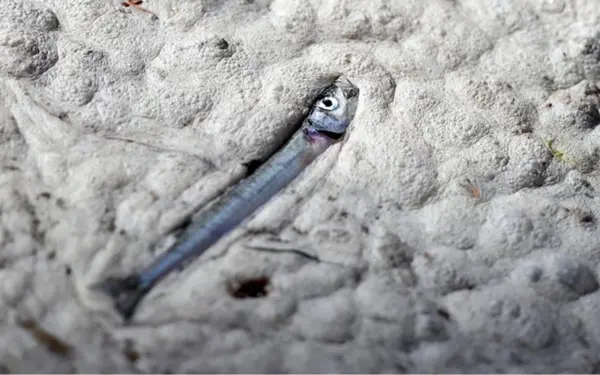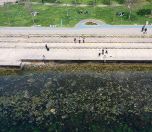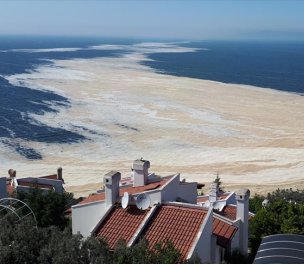The mucilage – also known as ‘sea snot’ – continuing to affect the Sea of Marmara is settling on the seabed and threatening marine life, putting corals at risk. These corals form a critical element in the sea’s ecosystem.
According to recent observations, mucilage on the seabed has begun to cover coral colonies around the Princes’ Islands, Marmara Island, and Avşa Island.
‘It is now dense on the seabed too’
Assoc. Prof. Nur Eda Topçu Eryalçın from Istanbul University’s Faculty of Aquatic Sciences, Department of Marine and Inland Water Resources Management, who regularly studies coral colonies in the Sea of Marmara with her team, told Anadolu Agency:
"Unfortunately, a nightmare has returned – we are experiencing mucilage again. It may not be as visible on the surface as it was in 2021, but there are large pieces of mucilage in the water column similar to that period. Large coral communities are mostly located between 30 and 40 meters in depth. Earlier this year, mucilage was concentrated more around 5 meters and was extremely dense up to 15–20 meters, thinning out around 30 meters. Unfortunately, it is now also being observed intensely on the seabed.”
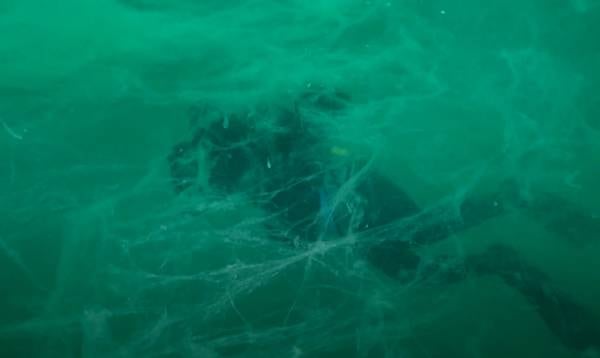
Underwater video reveals return of 'sea snot' in Marmara Sea
‘Marmara is a sea that responds quickly’
"We don’t have quantitative data yet. In the southern Marmara region, mucilage fragments are now visible on coral branches, and small necrotic deteriorations are starting to appear on the tips. During our most recent dive around the Princes’ Islands, we detected this on the branches of two sensitive species. I hope this time mucilage disappears before we reach the same outcome as before. At this point, there’s not much more we can do. But if we begin to see this mucilage periodically over the years, the sea will likely soon be devoid of any living organisms. This is a worrying situation.
"I don’t want to lead anyone into hopelessness. The Sea of Marmara is a sea that responds very quickly. While not every part of it, it is still a dynamic sea. If we make an effort, we will definitely see results. The items in the action plan must be implemented with sincerity and urgency. No untreated water should enter the Marmara. I believe that once we ensure this, we will definitely see a positive outcome."
About mucilage
Mucilage is a sticky, dense, jelly-like substance formed by the excessive proliferation of organic matter and microorganisms in the sea. Commonly known as ‘sea snot,’ this natural process is triggered by factors such as rising sea temperatures, stagnant water movement, and the excess of nutrients like nitrogen and phosphorus. Mucilage accumulates on the sea surface or seabed and disrupts the marine ecosystem’s balance.
Its formation lowers oxygen levels, threatening marine life and fish stocks. It also creates foul odors and environmental pollution in coastal areas, negatively impacting both tourism and fishing.
Especially in enclosed and poorly circulating bodies of water like the Sea of Marmara, mucilage spreads rapidly. It worsens as it covers both the seabed and surface, reducing light
penetration and critically lowering oxygen levels.
Mucilage is also a sign of the damage human activities inflict on marine ecosystems. The main causes include discharging domestic and industrial waste into the sea without adequate treatment, rising sea temperatures due to the climate crisis, and a weakened marine ecosystem. Solutions require improving wastewater treatment plants, preventing marine pollution, and strengthening both global and regional efforts to combat the climate crisis. (TY/DT)





